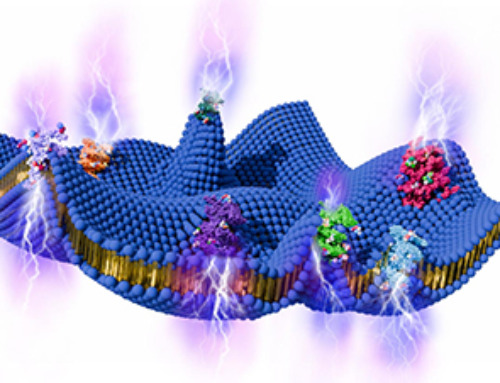- Virtual patients, vaccines, medicine-making biomachines and microneedles are examples of tech innovation that is meeting the moment to address the global health crisis.
- Health has been a strong focus for this year’s top 10 emerging technologies.
- Technology can drive a Great Health Reset, but success will be determined by the willingness of all stakeholders to trust one another and to invest in a shared effort.
This year’s Top 10 Emerging Technologies, revealed in a new report produced in partnership with Scientific American, are meeting the moment to fuel a “Great Reset”: a complete redesign of how we manage the current crisis and prevent or mitigate the next one.
Tech innovation is the agent of change. The current cohort, with those of earlier editions, offer solutions to the world’s most pressing challenges – notably the global health crisis and its economic fallout, alongside the ongoing climate emergency.
COVID-19 has exposed the global cooperation gap
The pandemic persists despite the extraordinary efforts of a global medical community to contain and expunge the underlying virus. Perhaps more concerning, the absence of a coordinated global approach to containment and resolution has likely expanded and extended its impact.
Two divergent yet critically entwined issues arise: the technological resources brought to bear in addressing this pandemic, and the global international governance and coordination required to achieve best outcomes.
One of this year’s Top 10, virtual patients – which replace humans with simulations – could make clinical trials faster and safer. Microneedles that provide painless injections, another technology on the list, could speed drug delivery for the prevention and treatment of viruses like COVID-19. A third tech, whole-genome synthesis, enables researchers to design genetic sequences that could be introduced into microbes to turn them into medicine-making biomachines.
Deep technical capabilities such as these executed in isolation are likely to be ineffective, as would be well-coordinated international efforts that are absent the required technologies. In achieving the Great Health Reset, both global governance and emergent technologies will play central roles together.
Reasons for optimism – virus hunting and pandemic bashing
To avoid future pandemics, access to what is traditionally seen as protected health data is critical. Such transparency is not supported by many nations today, and the current pandemic is in part a consequence of the time lag from disease discovery to reporting. It is a systemic, global problem.
The world needs to move towards a system where local healthcare providers, and their local government leadership, recognize and report data “up the chain of command.” Sequential reporting delays, or data suppression, costs lives as the disease vector spreads unchecked. Ideally, the autonomous collection and interpretation of medical reports in real time and on a global scale would drastically improve disease discovery.
News
Nanomedicine in 2026: Experts Predict the Year Ahead
Progress in nanomedicine is almost as fast as the science is small. Over the last year, we've seen an abundance of headlines covering medical R&D at the nanoscale: polymer-coated nanoparticles targeting ovarian cancer, Albumin recruiting nanoparticles for [...]
Lipid nanoparticles could unlock access for millions of autoimmune patients
Capstan Therapeutics scientists demonstrate that lipid nanoparticles can engineer CAR T cells within the body without laboratory cell manufacturing and ex vivo expansion. The method using targeted lipid nanoparticles (tLNPs) is designed to deliver [...]
The Brain’s Strange Way of Computing Could Explain Consciousness
Consciousness may emerge not from code, but from the way living brains physically compute. Discussions about consciousness often stall between two deeply rooted viewpoints. One is computational functionalism, which holds that cognition can be [...]
First breathing ‘lung-on-chip’ developed using genetically identical cells
Researchers at the Francis Crick Institute and AlveoliX have developed the first human lung-on-chip model using stem cells taken from only one person. These chips simulate breathing motions and lung disease in an individual, [...]
Cell Membranes May Act Like Tiny Power Generators
Living cells may generate electricity through the natural motion of their membranes. These fast electrical signals could play a role in how cells communicate and sense their surroundings. Scientists have proposed a new theoretical [...]
This Viral RNA Structure Could Lead to a Universal Antiviral Drug
Researchers identify a shared RNA-protein interaction that could lead to broad-spectrum antiviral treatments for enteroviruses. A new study from the University of Maryland, Baltimore County (UMBC), published in Nature Communications, explains how enteroviruses begin reproducing [...]
New study suggests a way to rejuvenate the immune system
Stimulating the liver to produce some of the signals of the thymus can reverse age-related declines in T-cell populations and enhance response to vaccination. As people age, their immune system function declines. T cell [...]
Nerve Damage Can Disrupt Immunity Across the Entire Body
A single nerve injury can quietly reshape the immune system across the entire body. Preclinical research from McGill University suggests that nerve injuries may lead to long-lasting changes in the immune system, and these [...]
Fake Science Is Growing Faster Than Legitimate Research, New Study Warns
New research reveals organized networks linking paper mills, intermediaries, and compromised academic journals Organized scientific fraud is becoming increasingly common, ranging from fabricated research to the buying and selling of authorship and citations, according [...]
Scientists Unlock a New Way to Hear the Brain’s Hidden Language
Scientists can finally hear the brain’s quietest messages—unlocking the hidden code behind how neurons think, decide, and remember. Scientists have created a new protein that can capture the incoming chemical signals received by brain [...]
Does being infected or vaccinated first influence COVID-19 immunity?
A new study analyzing the immune response to COVID-19 in a Catalan cohort of health workers sheds light on an important question: does it matter whether a person was first infected or first vaccinated? [...]
We May Never Know if AI Is Conscious, Says Cambridge Philosopher
As claims about conscious AI grow louder, a Cambridge philosopher argues that we lack the evidence to know whether machines can truly be conscious, let alone morally significant. A philosopher at the University of [...]
AI Helped Scientists Stop a Virus With One Tiny Change
Using AI, researchers identified one tiny molecular interaction that viruses need to infect cells. Disrupting it stopped the virus before infection could begin. Washington State University scientists have uncovered a method to interfere with a key [...]
Deadly Hospital Fungus May Finally Have a Weakness
A deadly, drug-resistant hospital fungus may finally have a weakness—and scientists think they’ve found it. Researchers have identified a genetic process that could open the door to new treatments for a dangerous fungal infection [...]
Fever-Proof Bird Flu Variant Could Fuel the Next Pandemic
Bird flu viruses present a significant risk to humans because they can continue replicating at temperatures higher than a typical fever. Fever is one of the body’s main tools for slowing or stopping viral [...]
What could the future of nanoscience look like?
Society has a lot to thank for nanoscience. From improved health monitoring to reducing the size of electronics, scientists’ ability to delve deeper and better understand chemistry at the nanoscale has opened up numerous [...]





















